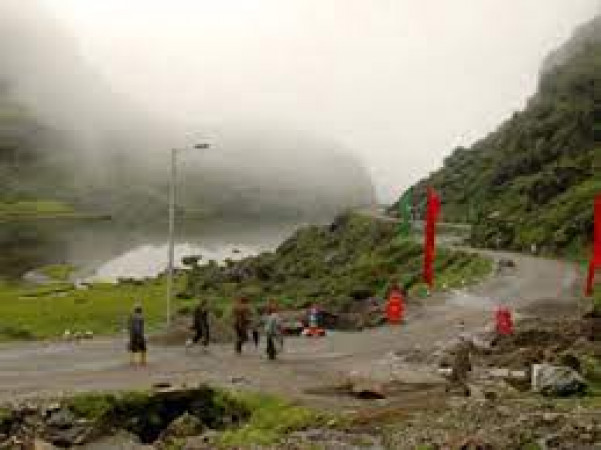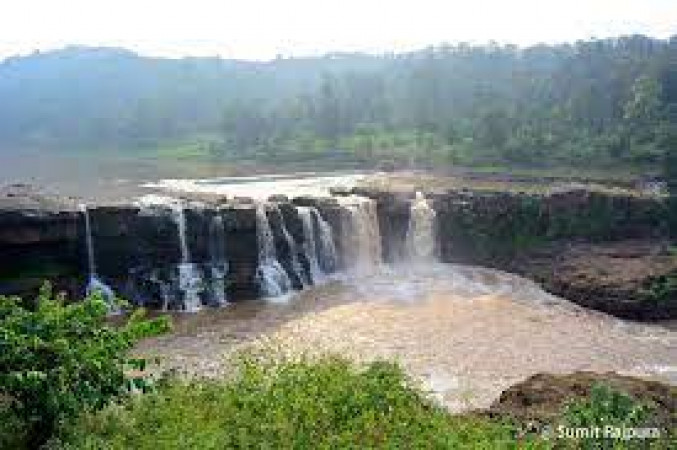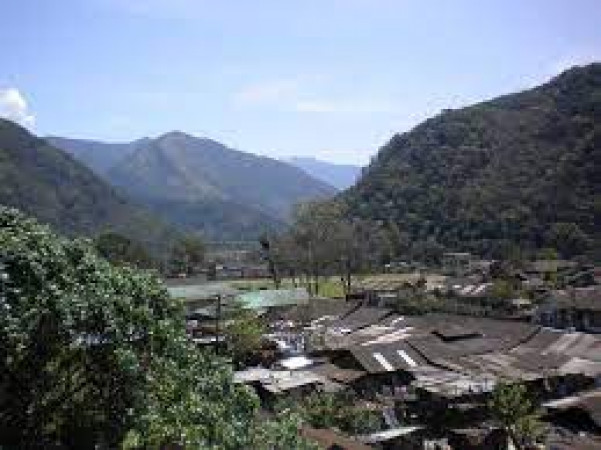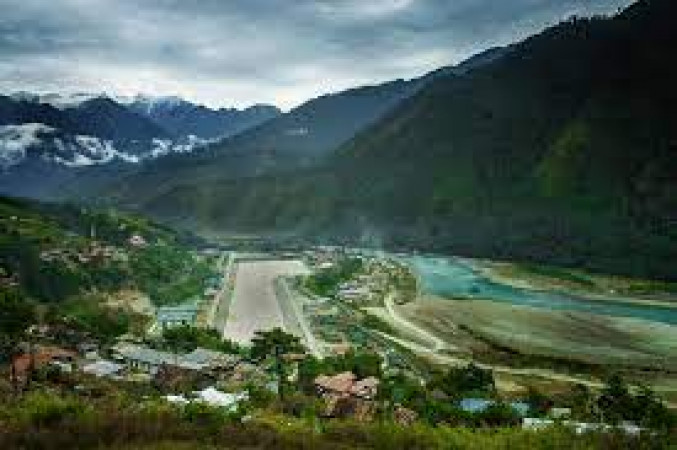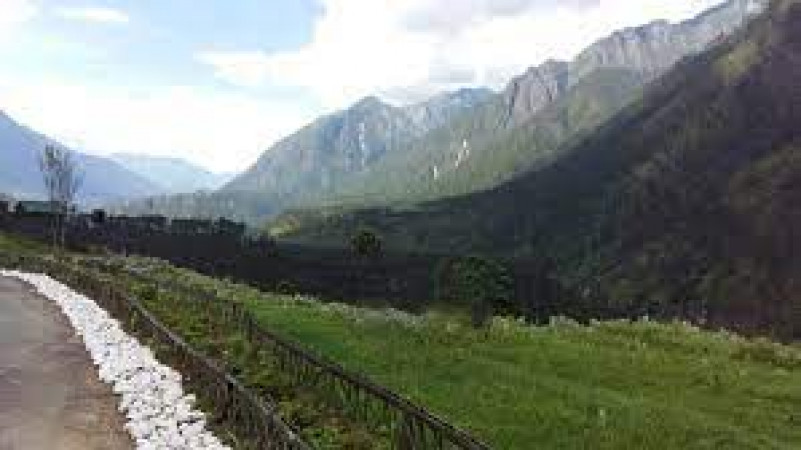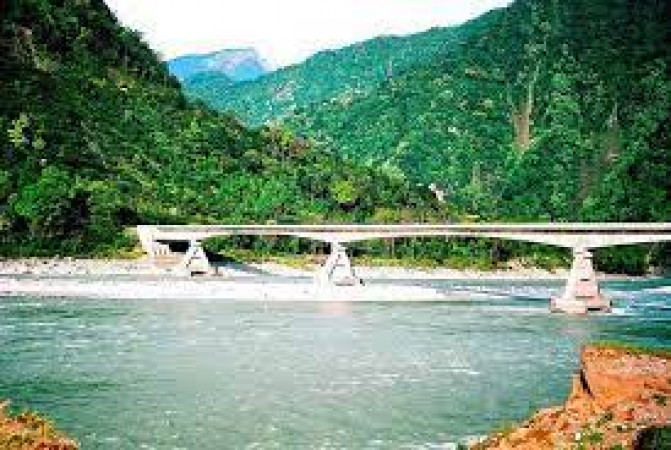Anjaw
Package
3000 to 15000
3000 to 15000
Duration
2 to 4 Days
2 to 4 Days
Best time to visit
Oct-Feb
Oct-Feb
Theme
Hill Station, Adventure
Hill Station, Adventure
Anjaw Travel Guide
Anjaw, located in the northeastern state of Arunachal Pradesh in India, is a hidden gem waiting to be explored. Nestled amidst the Eastern Himalayas, this picturesque destination is known for its stunning landscapes, rich cultural heritage, and warm hospitality. Anjaw is famous for being one of the least populated districts in India, offering travelers a serene and off-the-beaten-path experience.Top Attractions in Anjaw
- Walong War Memorial
- Kibithoo Village
- Hayuliang Township
- Chaglogam Village
- Kamlang Wildlife Sanctuary
Anjaw is Famous for
Anjaw is most famous for its pristine natural beauty and untouched landscapes, making it a paradise for nature enthusiasts and adventure seekers.Top Attractions in Anjaw
Anjaw offers a unique blend of cultural experiences and natural wonders that travelers can enjoy, such as exploring remote villages, trekking through lush forests, and encountering diverse wildlife.What's Great about Travelling to Anjaw?
- Perfect for offbeat travelers
- Opportunity to immerse in local culture
- Breathtaking landscapes for nature lovers
What's Not So Great about Travelling Anjaw?
- Limited tourist infrastructure
- Challenging terrain for some travelers
- Restricted access to some areas
Travel Tips for Anjaw
- Obtain Inner Line Permit before visiting
- Carry sufficient cash as ATMs are limited
- Respect local customs and traditions
Important Anjaw trip information
- Ideal Duration: 5-7 days
- Best Time to Visit: October to April
- Nearby Airports and Railway Stations: Dibrugarh Airport and Tinsukia Railway Station
Top 7 Places to visit in Anjaw
FAQ's on Anjaw
Q1: What is the best time to visit Anjaw?
Anjaw is best visited during the months of October to March when the weather is pleasant with clear skies, making it ideal for outdoor activities and sightseeing. This period avoids the monsoon season, ensuring a more comfortable travel experience. Additionally, various local festivals and events take place during this time, providing a deeper cultural experience for visitors.
Q2: Do I need a visa to travel to Anjaw?
Tourists visiting Anjaw typically require a valid Indian visa. However, travelers of certain nationalities may be eligible for visa exemptions or visa-on-arrival facilities. It is recommended to check with the nearest Indian embassy or consulate for the specific visa requirements based on your nationality before planning your trip to Anjaw.
Q3: What are the must-visit attractions in Anjaw?
Anjaw boasts a range of must-visit attractions, including the breathtaking Walong War Memorial, the serene Kibithoo Valley, and the picturesque Hayuliang Township. Nature lovers can explore the pristine Dibang Wildlife Sanctuary, while adventure enthusiasts can trek to the stunning River Mechuka. The peaceful Walong and Hawai towns offer a glimpse into the local culture and history, making them essential stops for any traveler in Anjaw.
Q4: Is Anjaw a safe place to travel?
Anjaw is generally a safe destination for travelers. However, like any other place, it is advisable to exercise caution and be mindful of your surroundings. It is recommended to avoid isolated areas, especially after dark, and to keep your belongings secure. Following basic safety measures and respecting local customs can contribute to a safe and enjoyable travel experience in Anjaw.
Q5: What is the local currency in Anjaw and can I use credit cards?
The local currency in Anjaw is the Indian Rupee (INR). While major cities and towns may have ATMs, it is advisable to carry sufficient cash, especially when traveling to remote areas. Credit cards are not widely accepted in Anjaw, so having cash on hand for transactions is recommended. It is also advisable to inform your bank about your travel plans to avoid any issues with card usage.
Q6: What is the local cuisine like in Anjaw?
Anjaw offers a unique culinary experience with a blend of indigenous flavors and traditional dishes. Local cuisine often includes rice, fish, meat, and leafy greens, reflecting the region's agricultural heritage. Must-try dishes include Thukpa (noodle soup), Momos (dumplings), and Zan (local brew). Vegetarian options like Aloo Pitika (mashed potatoes) and Bamboo Shoot Curry are also popular. Travelers with specific dietary preferences should communicate their needs to ensure an enjoyable dining experience in Anjaw.
Q7: What transportation options are available in Anjaw?
Transportation in Anjaw primarily relies on road networks, with buses and private taxis being the main modes of travel within the region. Car rentals are also available for those wanting more flexibility in exploring the area. While public transport may be limited in remote areas, shared jeeps and local buses offer budget-friendly options for getting around. It is advisable to plan your transportation in advance, especially for long-distance journeys, to ensure a smooth and convenient travel experience in Anjaw.
Q8: Are there any cultural norms or etiquette I should be aware of when visiting Anjaw?
When visiting Anjaw, it is essential to respect the local customs and traditions of the indigenous communities. Greeting locals with a smile and a respectful "Namaste" is appreciated. Dress modestly, especially when visiting religious sites or attending local events. Seek permission before taking photographs of individuals or sacred places. It is customary to remove your shoes before entering someone's home or a place of worship. Additionally, participating in local festivals and cultural activities can provide a deeper understanding of the region's rich heritage and traditions. Showing respect and being open to learning about the local way of life will enhance your travel experience in Anjaw.
Q9: I am a travel agent. How can I buy travel leads of Anjaw?
Register yourself as a travel agent at agents.tripclap.com and then you can buy travel leads to Anjaw once your account is approved. For more details contact our support team at +91-8069186564 or support@tripclap.com
